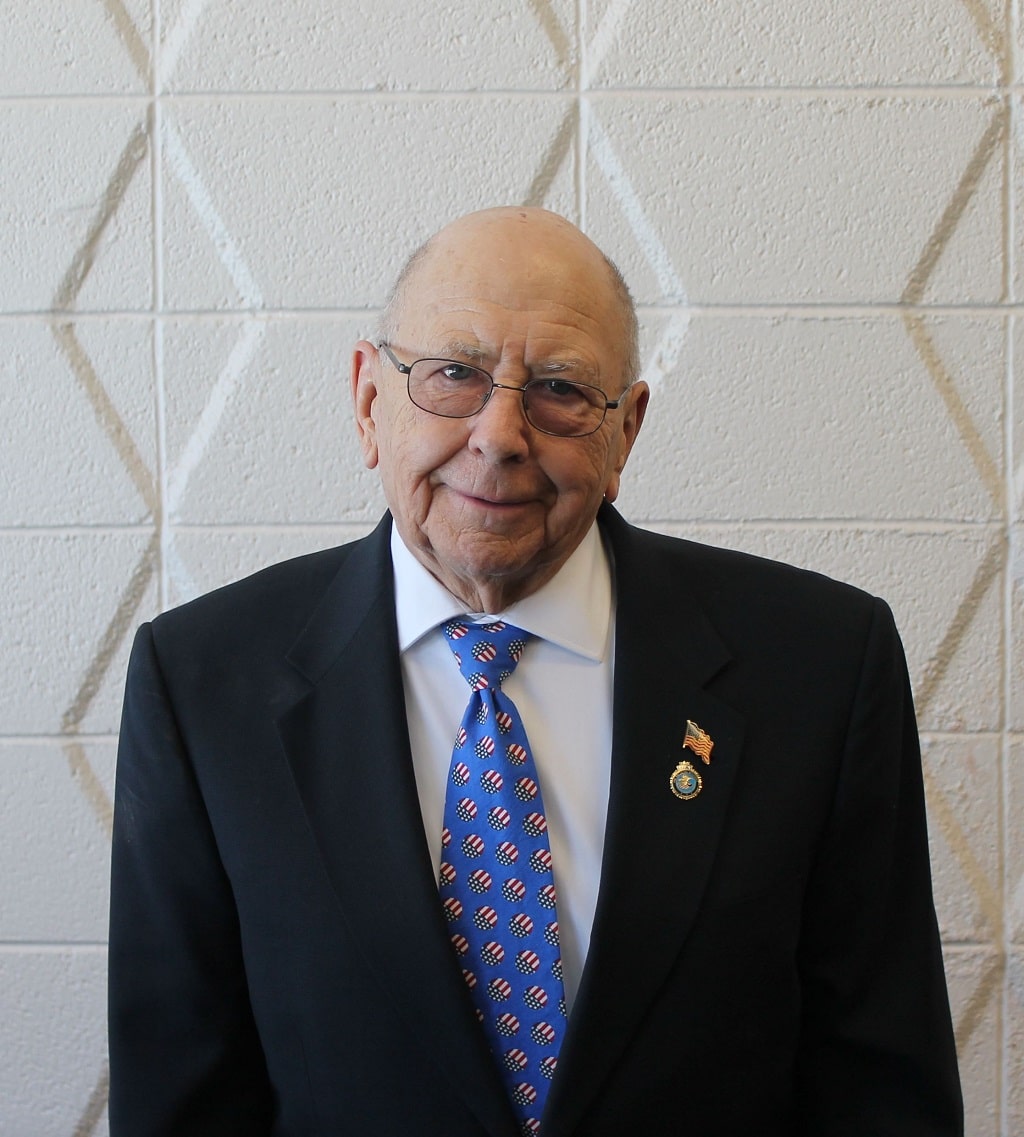
By Lynn Binnie
Whitewater Banner volunteer staff
whitewaterbanner@gmail.com
Reflecting on the early years of The Black Sheep restaurant, Tyler Sailsbery admits that he was scared for months. “The first time we had a party of 40, I was thinking, ‘we can’t feed 40,’” he recalled. “It’s mind blowing and now the largest we did was breakfast and lunch for 1600 – 3200 meals in about five hours — out of this kitchen and our catering kitchen!” Tyler clarified that the latter was referring to the vehicle that Black Sheep has served from at such locations as Staller Estate Winery and Duesterbeck Brewing Co. When you work in a kitchen, Tyler said, you use your arm to write reminder notes on rather than your hand, since you’re washing your hands so much. “The first year this whole part of my arm [pointing from his wrist to past his elbow] was full of notes; I eventually learned how a calendar worked…my personality shifted and I learned along the way to be able to organize things which seemed impossible at first.”
Relative newcomers to the Whitewater area may not realize that at one time Sailsbery’s drive to always be trying something new resulted in operating two additional restaurants: Casual Joe’s, which he owned, and the restaurant at what was then the Whitewater Country Club. Two of the establishments were open seven days a week, and the other, six days. Tyler said he hadn’t stopped to think about how many people’s livelihood he was responsible for those days until 88 employees showed up for the Christmas party. Eventually he had to learn to be content with what he had and not be working on the next thing. In fact, he felt he needed to have a narrower focus, so ultimately he sold Casual Joe’s, discontinued the country club relationship, and last year he closed his first business, nomoredorms.com.
Due to being in a college town, Tyler said, a restaurant will always have a challenge with labor turnover, but then again, “we have a consistent supply of labor.” In the average restaurant, seven out of ten employees leave every year, so he feels grateful to have maintained a two to three year average tenure. Tyler feels lucky that his staff was willing to work for him to help make his dreams come true. In the early days he had to hire people who didn’t care about food and help them care. By the fifth year they started attracting people who cared and wanted to grow. “Now people who apply want a future in culinary – not a job but part of their education and growth,” Tyler shared. Restaurant workers are generally considered “unskilled labor,” but he sees his staff as being very skilled.
The pandemic, of course, has presented a major challenge to all restaurateurs. The Black Sheep adapted and turned its catering vehicle into a food truck, but even still, in 2020 their business was down over 50%. Fortunately 2019 was a good year, and “the second half of 2021 has been good to us because the food truck caught on and now everyone wants that. We’re making up for the weddings that we didn’t have and we realized we had to build the second little food truck which will soon be licensed,” Tyler stated. At the height of the pandemic, from March through June of 2020, he and his staff prepared over 6000 meals and made them available to anyone in our community who needed them. Now the restaurant business is beginning to return towards normalcy, although still with more takeout than before, and the new Fairfield Inn’s referrals have brought new first-time guests.
What does Tyler feel have been some of the biggest accomplishments? He’s enjoyed some television appearances, including “Joe Pera Talks with You” on Adult Swim/Cartoon Network, and a cooking competition he recorded during the month of June, 2021 that will be shown on TBS. Full Service magazine named him one of the 40 chefs to watch. But he seems to light up the most when he says, “I think that I got to change how people ate in Whitewater and I think I gave other restaurants the confidence to start because they saw that something like this could be successful. Twelve years ago we had supper clubs, ‘Greek’ restaurants, fast food, and pizza. I got to say ‘if you’re a chef or interested in food you can succeed’…I think that was pretty cool.” In about the fourth year of the restaurant they had a “throwback week,” when they featured their original menu. One couple came in and said that when the Black Sheep first opened the food was really weird, so they liked that the food was now more normal. Yet it was the very same menu the couple would have experienced originally. “The world has changed,” Tyler commented. “When we first had lamb orzo pasta on the menu, no one wanted to try it. Finally the wait staff started telling diners that it’s my favorite dish, and many found that they liked it.”
Whitewater native Jay Stinson was hired in mid 2021 primarily to manage the “front of the house” and its relationship with the “back.” Though Stinson had some background in food service, in recent years he’d been in sales with Grainger and Stanley Black & Decker. He always wanted to be an entrepreneur, and wanted to be a good, fair businessman, and someone who gives back to the community. He knew that Tyler had done a lot for the community, especially during COVID-19, and wanted to have mentors like him. Consequently when he learned Tyler was selling the business, “I was bummed out but I saw an opportunity to have a great mentor and take over a business that was already really beneficial to the community and something that I would be proud to carry on.” That became a reality with the help of the Community Development Authority and First Citizens State Bank, and Jay will become the owner with the new year.
Jay’s interest in the “back of the house” originated initially from the realization that he needs to know what to do if a chef is unable to report to work, but the more experience he’s gotten with the food preparation, he says the more fun he’s had. He worked with the staff in developing the last two menus, and does not plan to make any major changes in the cuisine. Among the Black Sheep’s creative initiatives, Jay anticipates continuing cooking classes – whether live or virtual – and hopes to plan some more joint events with other downtown restaurants.
Why did Tyler decide to sell his restaurant? It first crossed his mind early in 2020 when things shut down, but then he got so busy with the free meals that the thought just went away. He sees himself as a rather spontaneous person, a trait which has been stifled by the demands of the business. Ultimately he got more downtime to think during the pandemic. Ten years seemed like a good year to be done, especially when he heard that the average restaurateur lasts seven years in the business. He looks forward to not being the person who has to tell some of the staff that they can’t take a day off for something special because there were too many requests. Tyler’s last night will be New Year’s Eve, and a very special menu is being planned for his final hurrah. As of Christmas the 5:30 and 7:00 seatings were essentially full, with some openings at 8:30. Then Sailsbery will be in North Carolina to see his parents and his sister and family, followed by a cruise with them. On February 1 he’s off to Thailand as his home base to decompress. Why Thailand? He visited there once for four days on a last minute decision, and though he really enjoyed the country and the cuisine, “it doesn’t make much sense to spend four days getting to a place in order to spend four days there!” Since Thailand only allows visitors to stay for thirty days at a time, he’ll be making side trips to experience some other countries. Then he’ll be back to Whitewater briefly in May to assist his former staff in launching their busy catering season, as they’ve committed to more weddings in eight days than ever before. It’s only then that he’ll concentrate on envisioning his future. Recently he took flying lessons in Palmyra, which he really enjoyed. When he was attending UW-Whitewater he was a flight attendant for Midwest Airlines. “They told me I’d get tired of those chocolate chip cookies, but I never did,” he admitted. Since he loves to try the cuisine in different areas, piloting would facilitate that, and he surmises it could be an interesting new career.
Meanwhile, a relatively young Jay, whose ambitiousness could easily remind one of Tyler a decade ago, looks forward to his new adventure, as the restaurant reopens on January 4. He’s grateful that the experienced staff, except for Tyler, will still be on board. Head Chef Tim Franklin, for one, has already assisted in developing 22 new menus. “I encourage everyone to come in and give me feedback as we get into it,” Jay said. “I want The Black Sheep to continue to be an important place for the community, and for our diners to feel that they have a piece of it. People go out for an experience. Especially after COVID, people want to not just go out for a meal; if they’re going to go out they want to have a positive experience. That’s something I’m going to continue to strive for.”






















